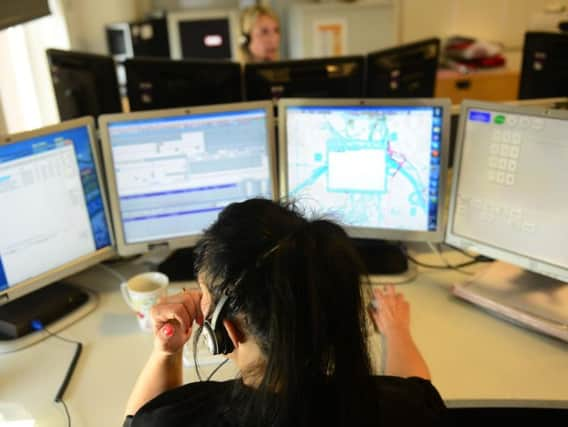Hundreds of hoax calls are made to 999


Data obtained the Observer under the Freedom Of Information Act show 790 such calls were made to the police, fire and ambulance services last year by people in the Wigan borough.
Other news: Warning over phone call barring scamThat was the equivalent of more than two false calls made in the borough every single day.
Advertisement
Hide AdAdvertisement
Hide AdThe majority of the calls - 682 - were made to Greater Manchester Police, with 69 to Greater Manchester Fire And Rescue Service and 39 to North West Ambulance Service.
All three organisations have now spoken out about the problem of hoax calls and urged people to think twice before doing it.
It follows recent reports of upset customers phoning the police to report that fast-food restaurant KFC was closed. And in January fire crews were called to Leigh in a hoax call from a child saying his friend had been pinned underneath a car.
While the number of hoax calls to the police and fire service dropped over the past five years, they rose last year.
Advertisement
Hide AdAdvertisement
Hide AdThe police recorded 753 false calls in 2013, falling to 604 in 2016 but rising to 682 in 2017.
Supt Mark Kenny, who oversees the police’s call handling team, said: “Any hoax or inappropriate call that comes to us, whether it lasts minutes or just a few seconds, puts a strain on our call handlers and takes up valuable time that we could be responding to real emergencies.
“While some people may think it’s harmless fun, or a practical joke, there are very real consequences.
“We work as hard as we can to answer as many calls as possible but people selfishly misusing the service or calling us for reasons they shouldn’t be puts real strain on our already stretched teams.
“Please, think before you pick up the phone.
Advertisement
Hide AdAdvertisement
Hide Ad“Only use 999 where there’s an immediate threat to life or property, and only call 101 to report a crime that’s already happened. For anything else, take a look at our website at www.gmp.police.uk/GMP4U for tips on how best to get in touch with the right people for your problem.”
The fire service had 72 calls for malicious false alarms in 2013, dropping to 53 in 2015 but then rising to 54 and 69 in the following years.
Lee Coleman, Wigan borough manager for the fire service, said: “Although it is positive to see that hoax calls have gone down in the last five years more recently they have been on the rise again.
“Where some people may see it as a harmless prank they cause a real danger to the public of Greater Manchester.
Advertisement
Hide AdAdvertisement
Hide Ad"Our time is precious and being called out to hoax incidents takes up our time and can tie up vital resources when they may be needed elsewhere. Hoax calls are not a harmless prank, hoax calls cost lives.”
The ambulance service has seen a steady drop in the number of hoax calls over the past five years, from 70 in 2013-14 to 39 last year.
A spokesman said: “Making a 999 call for anything that isn’t a life-threatening or serious emergency simply puts lives at risk by taking up valuable time and resources for not only ourselves, but also our emergency service colleagues.
“Our emergency control centres handle around 4,000 emergency calls every day and only a relatively low number are hoax calls compared to the number of calls for real incidents.
Advertisement
Hide AdAdvertisement
Hide Ad“However, any call that is not a medical emergency can prevent or delay ambulance crews getting to the genuinely sick people who are in the most need for urgent help.
“Over the past few years we have worked hard to improve the way that we handle 999 calls with clinicians now able to call patients back and make decisions over the phone as well as a great deal of work to put support in place for our most frequent callers.
GMP receives the majority of the hoax calls made to the emergency services by Wiganers.
As the force deals with these - and the many genuine calls made every day - it is reminding people to think twice before calling.
Advertisement
Hide AdAdvertisement
Hide AdIts GMP4U campaign asks people to use the “four-step rule” before getting in touch.
Step one: Is it a police issue or is there another service that is better suited? The most asked questions for advice on who is best to help can be found at www.gmp.police.uk/gmp4u.
Step two: Is the information already on the website? There is a lot of crime prevention advice, information on local neighbourhood policing teams and a place to ask questions.
Step three: Has a crime already happened and do you want to report it? Do you want to share information? Call 101.
Step four: Is a crime happening right now or is a life or property at risk? Call 999 straight away.